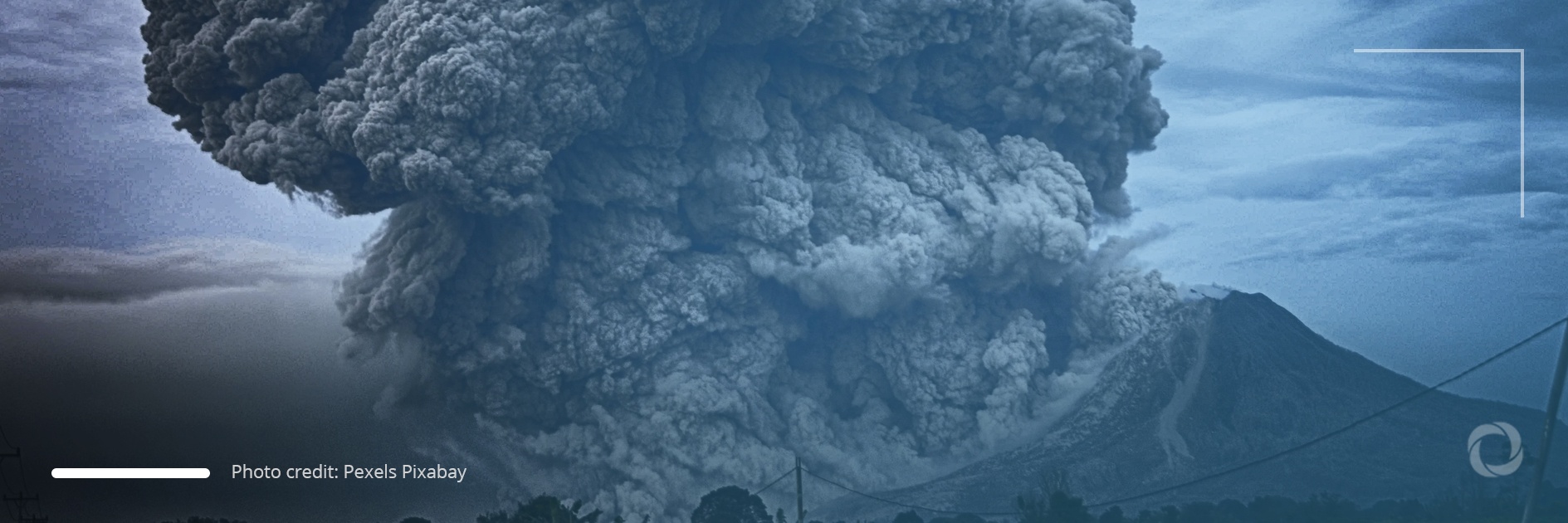Scientists have warned that climate changes are likely to step up volcanic activity and reverse its cooling effect on the atmosphere. A recent volcanic eruption in Tonga has again brought this issue into the spotlight.
The eruption of a submarine volcano occurred on 14th January off the western coast of the uninhabited island of Tongatapu in the Southern Pacific Ocean. Its power was so huge that it provoked tsunami waves up to 3 meters high which affected all of the Pacific. NASA estimated that the eruption was “hundreds of times more powerful” than the first atomic bomb dropped on the Japanese city of Hiroshima.
Do volcanic eruptions still have a cooling effect?
Until recently, it was known that volcanic eruptions had a cooling effect on the atmosphere thanks to the aerosols emitted during explosions. The stronger the eruption, the more powerful the elevation of the aerosols into the stratosphere is.
However, research published in 2021 in ScienceDaily pointed out that global warming might have changed this. According to its findings, the cooling effect of smaller and more frequent eruptions may be significantly reduced due to the warmer climate.
“What really matters is whether these [volcanic aerosols] are injected into the stratosphere—that is, above 16 kilometers in the tropics under current climate conditions and closer to 10 kilometers at high latitudes,” said Thomas Aubry, a geophysicist at the University of Cambridge in the United Kingdom and lead author of the new study. “If [aerosols] are injected at these altitudes, they can stay in the atmosphere for a couple of years. If they are injected at lower altitudes, they are essentially going to be washed out by precipitation in the troposphere. The climatic effect will only last for a few weeks.”
This is why the cooling effect of eruptions of a moderate magnitude that emit a lot of sulfate aerosols have reduced by about 75% and this is connected to air temperature. Thus aerosols from moderate volcanic eruptions will be more likely to remain in the troposphere rather than the stratosphere and when the rain removes these, their cooling potential is diminished.
How might global warming affect volcanic activity?
Another study published in 2017 in GeoScienceWorld showed that the more the global temperature rises, the higher volcanic activity is. Scientists undertook their research in Iceland which is known for its very high volcanic activity and is located close to the North Pole which is a huge reservoir of the ice sheet. Researchers investigated eruptions in Iceland that happened about 5,500 to 4,500 years ago. They compared the volcanic records with glacial coverage and they found that when the climate was cooler and there was more ice, the number of eruptions fell. In turn, when the glaciers melted, the number of eruptions grew. What is more, the findings show that while volcanic eruptions during cooler periods were of smaller magnitude, those in warmer periods tended to be stronger.
Although scientists have not confirmed their findings in other areas of volcanic activity, Professor Swindles argues that global warming will bring more eruptions with catastrophic consequences.
“I think we can predict we’re probably going to see a lot more volcanic activity in areas of the world where glaciers and volcanoes interact,” he said.

